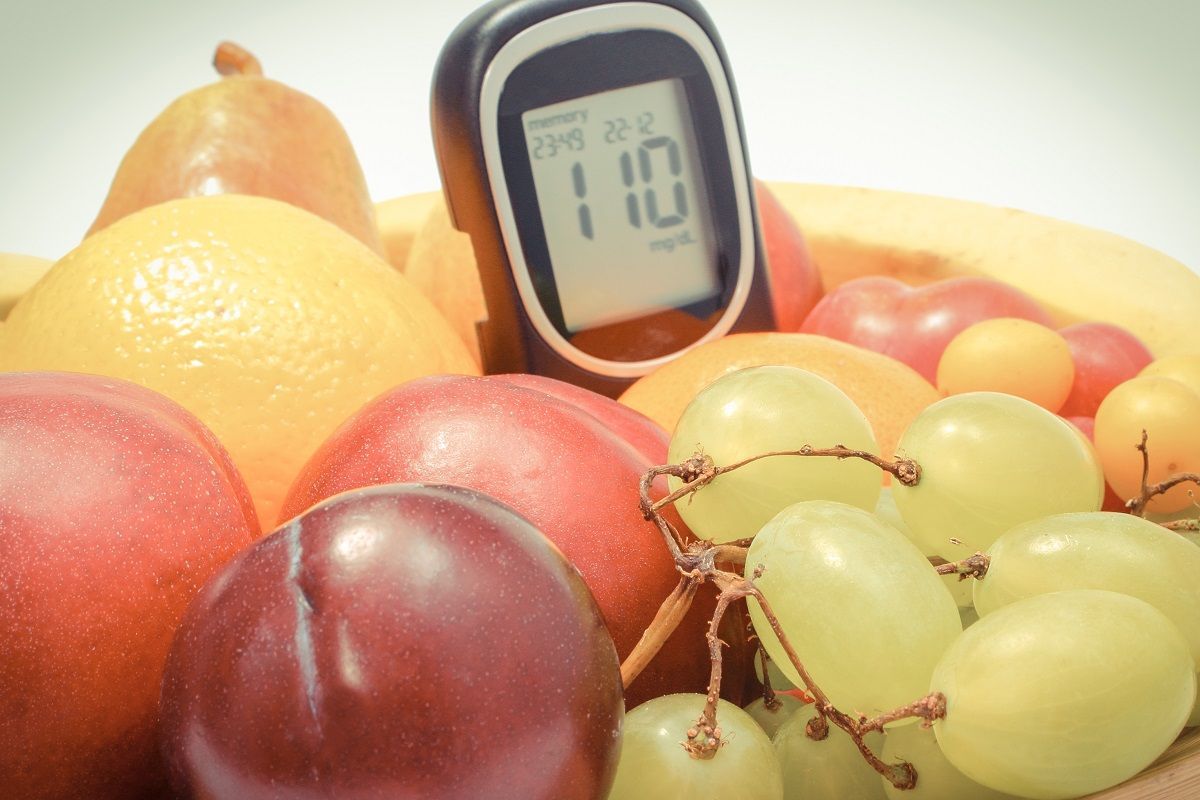
We Proudly Accept Medi-Cal and Medicare
Write your caption hereButton
Now Accepting Walk-ins!
Write your caption here

We Proudly Accept Medi-Cal and Medicare
Write your caption hereButton
Now Accepting Walk-ins!
Write your caption here

Eating Healthy During the Holidays
The holiday season is often associated with joyous celebrations and mouth-watering food. However, for people with diabetes, it is often a challenging time. The abundance of tempting treats makes sticking to a healthy diet difficult. Nevertheless, with proper planning and preparation, there is a way to enjoy the holiday diet without risking one's health.
We know the prospect of guilt-free holiday feasts is exciting, but first, let’s take a look at the medical condition that makes it quite a distressing time for a lot of people worldwide.
What is Diabetes?
Our healthy holiday eating tips make more sense once we understand the health condition they address. Diabetes is a life-long disease that affects how your body processes blood sugar (glucose).
Types of Diabetes
In type 1 diabetes, your pancreas, a small organ behind the stomach, gradually decreases insulin production until it eventually stops producing insulin altogether.
In
type 2 diabetes, your cells do not respond to insulin as they normally should. This condition is called insulin resistance. As a result, your pancreas manufactures excessive insulin amounts to get your cells to respond.
Both types of diabetes often lead to high blood sugar levels, which cause a variety of health problems over time if left untreated.
What Are the Symptoms of Diabetes?
The symptoms of diabetes depend on the type and individual factors.
Some common symptoms include:
- Frequent urination
- Increased thirst
- Extreme hunger
- Unexplained weight loss
- Fatigue (blurred vision)
- Slow-healing sores or cuts
- Tingling or numbness in the hands or feet
- Dry skin
- Recurring infections in the gums or skin
If you experience any of these symptoms, consult your healthcare provider for an evaluation. Diabetes is identifiable with a
simple blood test. Moreover, early diagnosis and treatment help prevent or delay complications.
Causes of Diabetes
The causes of diabetes depend on the type that you have. It does not have a predominant cause and differs from one person to another.
- Type 1 Diabetes
Type 1 diabetes occurs when the body's natural defenses mistakenly attack and destroy the cells in the pancreas that produce insulin. This autoimmune reaction's exact cause is unknown. However, it may be related to genetic and environmental factors.
- Type 2 Diabetes
A combination of genetic and lifestyle factors triggers type 2 diabetes. Obesity, a sedentary lifestyle, and a diet with excessive sugar and processed foods increase the risk of developing type 2 diabetes.
- Gestational Diabetes
Gestational diabetes is another diabetes variant that may occur during pregnancy. It occurs due to hormonal changes that affect how the body processes blood sugar.
Other less common forms of diabetes, such as
monogenic diabetes and
cystic fibrosis-related diabetes, have specific genetic or medical causes.
Healthy Holiday Eating Tips for Diabetics
With a better understanding of diabetes and how it affects your health, let’s see the best practices to enjoy the gastronomic goodness of the holidays, all without compromising your health.
- Create a diet plan.
One of the best ways to stay on top of your diabetes during the holidays is to plan your diet. Before you go to any event, know what you will eat and how much. You may also bring a healthy dish to share so you know you'll have something safe to eat.
- Practice portion control.
Portion control is vital for managing your diabetes. It's easy to overindulge during the holidays, but keep your portions in check. Use smaller plates, and fill half of your plate with non-starchy vegetables. Limit your portion of higher-carb foods like mashed potatoes or stuffing.
- Choose the right foods.
Some foods are better than others for people with diabetes. Choose lean proteins like turkey, ham, or fish, and avoid fatty meats like prime rib. Opt for whole-grain bread or rolls instead of white bread, skip the gravy, or choose a low-fat version. And, of course, avoid sugary desserts like candy, cookies, and cakes. Read more about the best diet plan for diabetic patients here.
- Don't skip meals.
Skipping meals leads to overeating later, so eat regularly throughout the day. If you're going to a party in the evening, have a healthy breakfast and lunch to keep your blood sugar levels stable.
- Engage in physical activities.
Physical activity is vital for everyone, much more so for people with diabetes. During the holidays, it may be challenging to find time to exercise, but even a short walk helps. Try to get at least 30 minutes of moderate exercise each day.
By following these healthy holiday tips for diabetics, you will enjoy the season without compromising your health. Remember, it's all about balance, so don't be too hard on yourself if you slip up. Like how another year starts just as the previous one ends, get back on track and keep moving forward. Happy holidays!
FAQs
- How is diabetes diagnosed?
Doctors diagnose diabetes with a simple blood test that measures your blood sugar level. They may also request additional tests to determine the type and severity of diabetes.
- How is diabetes treated?
Diabetes treatment depends on the type, severity, and a person's reaction to the disease. Treatment options may include lifestyle modifications. Some examples are diet, exercise, medication, and insulin therapy.
- Can diabetes be prevented?
Although certain risk factors for diabetes, like family history and age, are beyond our control, other factors are more manageable. Engaging in physical activities and maintaining a good weight significantly decrease the likelihood of developing diabetes.
- What are the complications of diabetes?
Untreated or poorly managed diabetes often leads to a variety of health problems over time, including cardiovascular disease, nerve damage, kidney damage, eye damage, and foot damage.
- How can I manage my diabetes?
There are many, highly achievable ways to manage diabetes. Some examples are:
- Monitoring your blood sugar levels
- Taking medication as prescribed
- Eating a healthy diet
- Exercising regularly
- Seeing your doctor for check-ups and screenings
Enjoy the Holiday Festivities Without Fear of Diabetes!
The holidays are almost here, which may have prompted you to search online for “diabetes holidays,” "holiday nutrition tips," or "Thanksgiving food for diabetics." Well, you found just the right page – and perhaps the right clinic for your health needs, too.
AllMed Medical Center is Sacramento's most trusted primary care facility. Our board-certified physicians provide accurate diagnoses to help determine if you have diabetes. We also have highly experienced internal medicine doctors to help you gain the upper hand against diabetes and similar conditions.
Enjoy the food you love during the holidays again! Request an appointment here!
AllMed Medical CentersServing
Greater Sacramento
Allmed Medical Center | All Rights Reserved.










